Social SEO Strategy: How to Rank in Social Search & Drive Sales
Want to get found in social search? We dig into how social SEO works on TikTok, Instagram and YouTube to help brands increase discovery and drive...
Stakes are high with social SEO as consumers flock to TikTok and Instagram to find products. We dig into five social media search tools to help brands rank faster.

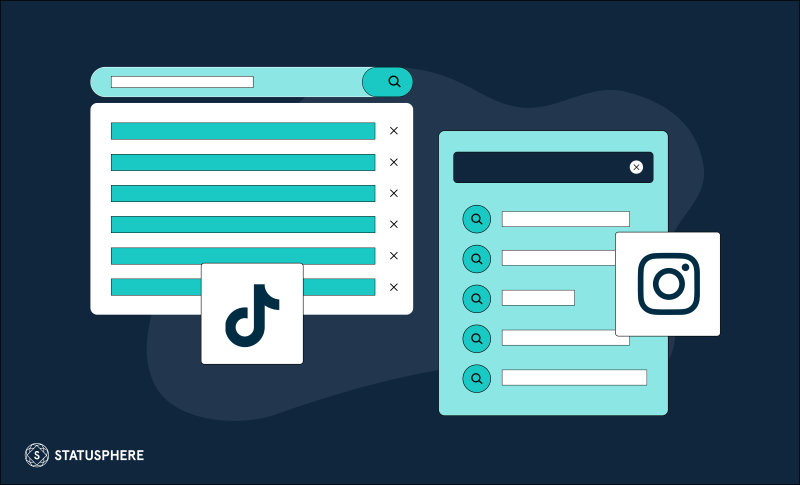
Brands are scrambling for social media SEO tools for good reason.
The fact that 64% of Gen Z turn to TikTok over Google to find products speaks for itself. Couple that with TikTok and Instagram’s ongoing search features.
Translation? Social SEO is here to stay.
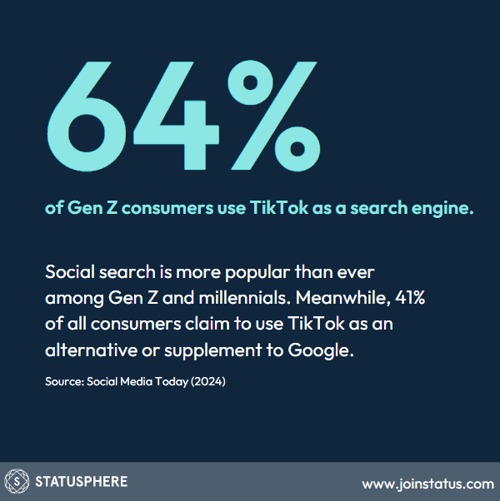
This is all the more reason for brands to cement their social rankings sooner rather than later. Like traditional SEO, the right software can clue you in on keywords and opportunities to rank.
In this post, we’ll dig into five social media search engine optimization tools that can help.
We’ll bite: the whole concept of social media as a search engine is still evolving.
The tools and metrics used to measure and improve their social SEO are evolving, too.
As a result, some marketers are skeptical of social search tools. We totally understand why.
Still, there’s no denying the impact of social content to satisfy search intent. We’ve seen firsthand how brands use influencer content to improve TikTok SEO and rank for keywords.
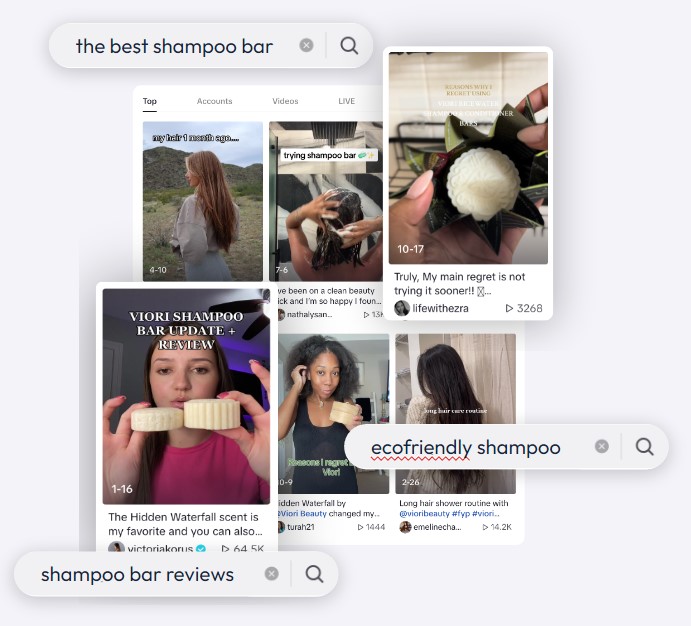
Chances are there are relevant keywords you can seamlessly weave into your branded or influencer content to improve your social SEO rankings, too.
It’s just a matter of knowing what they are.
That’s where these social SEO tools can shine. Below are five free (or freemium!) social search engine optimization tools to test-drive for yourself. A combination of these tools can help you:
And with that, let’s dive right in!
If you want to understand trending TikTok keywords, start with the app’s Creative Center.
The “Keyword Insights” search feature is particularly powerful. Here you can which keyword terms of trending in real time on TikTok. These insights can help you uncover organic content ideas and likewise creative direction for your Spark Ads.
Important: the trends and data of the TikTok Creative Center are based on ads (not organic content).
The “Popularity” score is determined by the volume of that particular keyword in recent ads. You can also see which terms earn the most impressions and conversions.
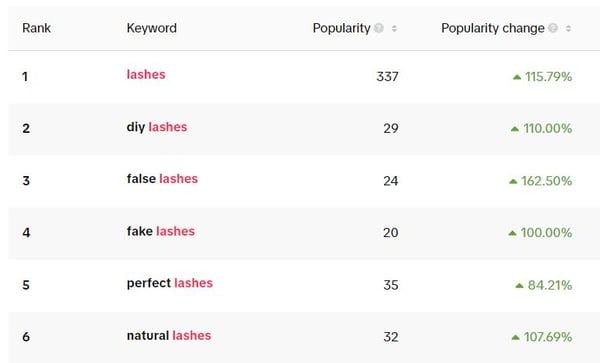
What’s most notable about the Creative Center versus other social search engine tools is that it also digs into keywords that are spoken within videos. You can see actual lines of dialogue from creators or voice-over narrations to give context to how any given keyword phrase is being used.
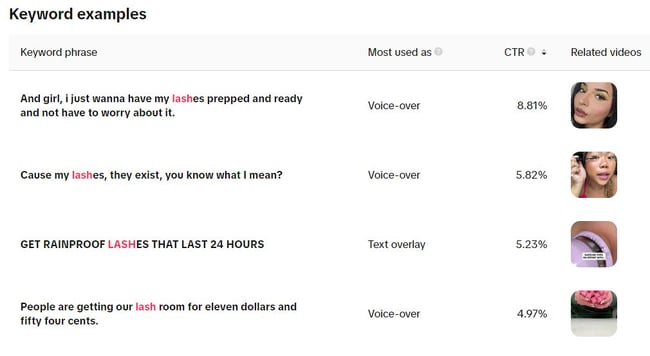
You can refine your social keyword research using filters such as your industry or the type of keywords you’re looking for. For example, you can search specifically for TikTok keywords that signal pain points or selling points for shoppers. These details are key to understanding search intent.
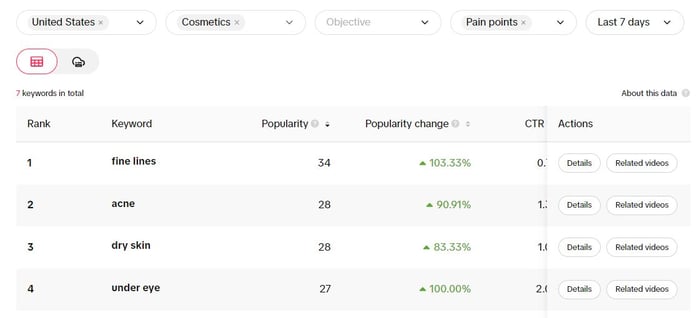
These terms are perfect to incorporate into your influencer briefs to give creators specific talking points or direction with their content. Weaving these phrases into captions, video descriptions and spoken dialogue are all fair game.
Oh, and TikTok recently rolled out their own Creative Assistant which uses generative AI to help brands craft ads that align with social media search optimization. Although the results aren’t exactly perfect or even ad-ready, they can push you in the right direction or inspire ideas for organic content.
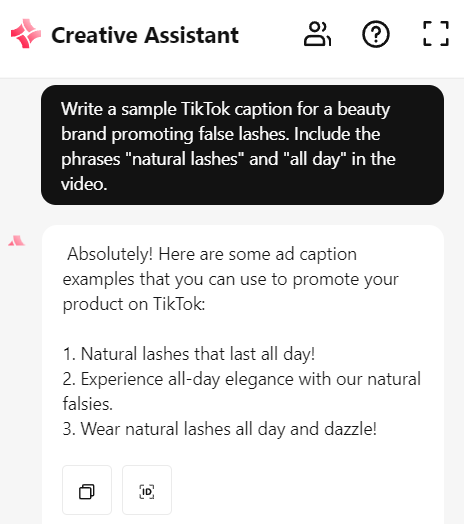
TikTok will point out whether or not the suggestion captions or scripts are optimized for social search.
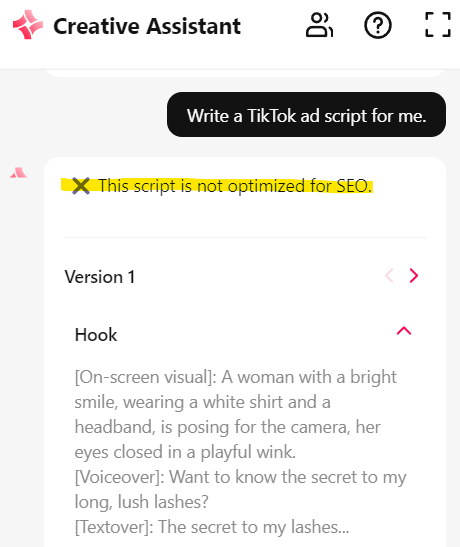
As far as free social SEO tools, the Creative Center is a starting point for understanding keywords and ideas for promoting products on TikTok.
Ahrefs is an SEO powerhouse that includes a massive suite of tools.
And some of their free tools are awesome for creating content for social media SEO.
For starters, Ahrefs’ free social hashtag generation tool can help brands on both TikTok and Instagram uncover ways to expand their posts’ reach.
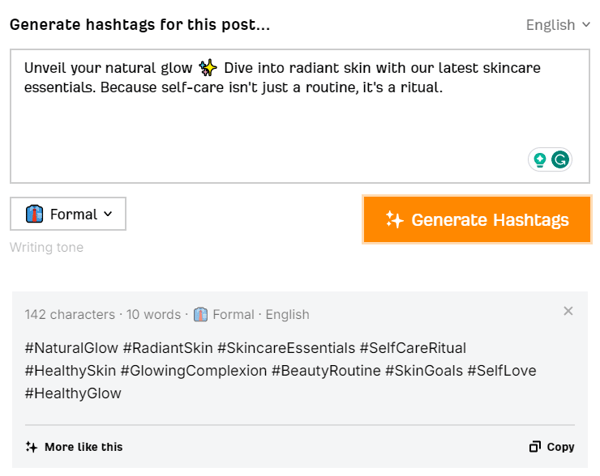
While the jury’s out on how much hashtags actually help, they represent a low-hanging (and non-spammy!) way to give posts more juice for the algorithm. Granted you don’t go overboard!
Consider that independent research notes that TikTok posts with ~5 hashtags earn more engagement than those without them. This likewise aligns with TikTok’s best practices. The fact that many review and product-centric hashtags boast billions of views (and 100,000s of posts) says it all.
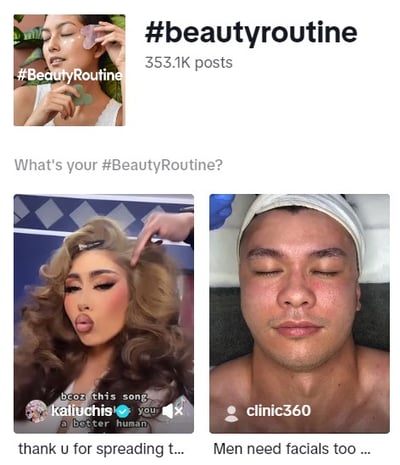
If nothing else, hashtags are crucial for the sake of categorizing your promotional content and helping social algorithms understand what your content is all about.
Ahrefs also has a free tool to generate social captions based on your ideas, keywords and hashtags. This means you can come up with video descriptions optimized for social search all in one place. The tool can also provide variants and voices to offer from variety as you fine-tune your captions.
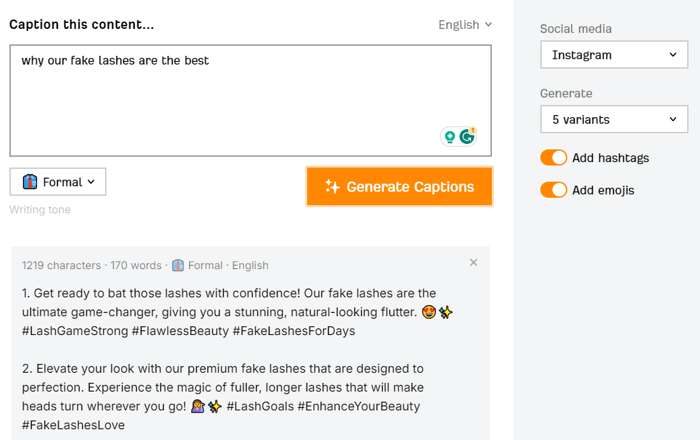
But wait, there’s more!
While Ahref’s free keyword generator is intended primarily for Google searches, it can also double as a social media keyword research tool.

For example, below is a general search query and its estimated Google search volume.
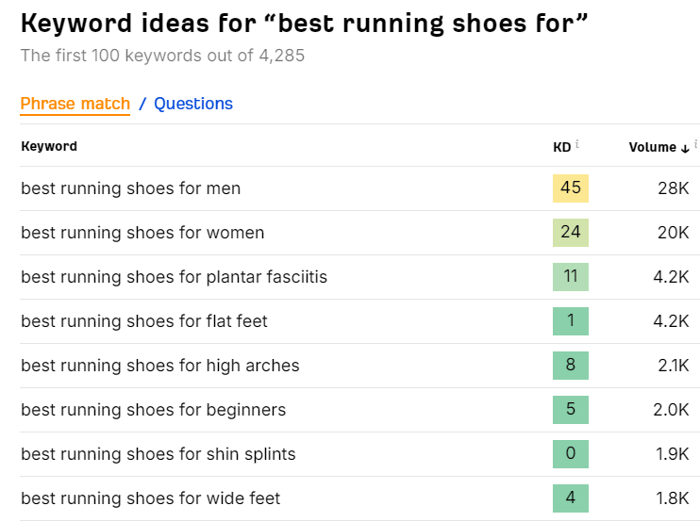
Let’s plug a similar query into TikTok and see what happens. Note the overlap between Google and TikTok results, including many exact-match keywords.
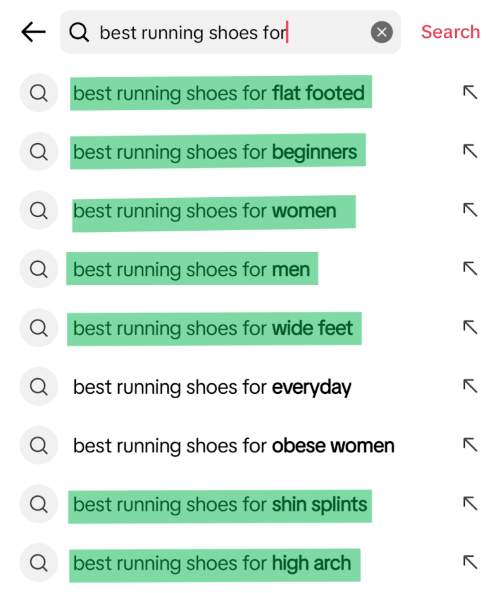
Pretty cool, right?
This overlap illustrates the connection between social search engine optimization and “traditional” SEO. Whether via Google or TikTok, shoppers and searchers share many of the same pain points and seek the same results. This is also why TikTok is so valuable for CPG brands as shoppers bounce between both channels to research products. It’s not a matter of either-or.
As noted earlier, more consumers than ever turn to social media to find what they’re looking for.
This includes new products and brands.
If you can predict and anticipate the questions your target audience is asking, you’re already a step ahead when it comes to which types of content to create and which keywords to target to encourage buyers to take action.
Social search optimization tools like AlsoAsked are a goldmine to help you align your content strategy with questions that people are actually asking. You can feed it a search term and it’ll return a list of related queries. Currently, the free version of this tool lets you search up to three terms a day.
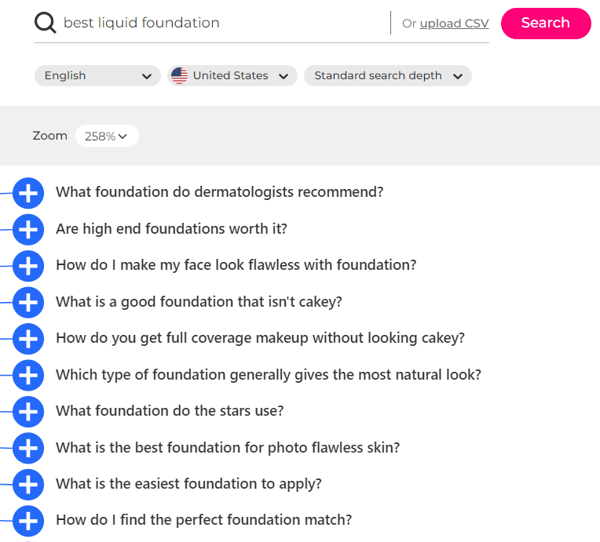
Questions like this are perfect for inspiring content ideas and keywords to target. Regardless of your product or industry, these types of question-based keywords perform well on social media:
The sooner you start ranking for these sorts of terms, the better. Dominating the “best” or “how to” category for your industry means that you’ll be seen before your competitors long-term.
Of course, cementing social SEO rankings can happen faster when creators consistently publish content on your behalf. This is exactly what happened with Viori who managed to rank for commercial keywords with the help of 1,000+ pieces of content generated by our platform.
While TikTok gets the most attention when it comes to social media SEO, Instagram is home to its own community of social searchers and potential customers.
Understanding hashtags on Instagram is an underrated way to piggyback on trends and boost your brand’s visibility on the platform. Much like TikTok, anything you can do to get your brand seen on a hashtag search page is a plus. Picking the right hashtags is an obvious starting point, right?
Inflact is an AI-based hashtag discovery tool built for Instagram that can help. This tool can translate Instagram keywords into hashtags based on trending topics and search volume.
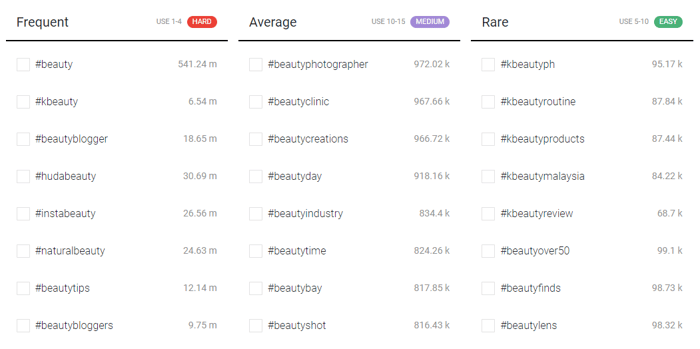
The tool lets you search Instagram hashtags based on keywords, images and even URLs. Results are automatically sorted into popular, commonly-used and rarely-used tags.
If you’re ever stuck on which hashtags to use on Instagram, this tool is a lifesaver. You can also plug in your resulting hashtags into a tool like Ahrefs to generate social captions. This is an example of how you can use multiple social media search tools to validate your content and keyword ideas.
Social media keywords don’t mean much unless we understand their search intent.
And that’s exactly where sentiment analysis can be a huge help for social SEO.
Figuring this out can be tricky as tools like TikTok’s Creative Center don’t really share information related to branded terms.
However, tools like BrandMentions can put your branded search terms into context.
For example, what phrases or terms are associated with your brand? Are they positive? Negative?
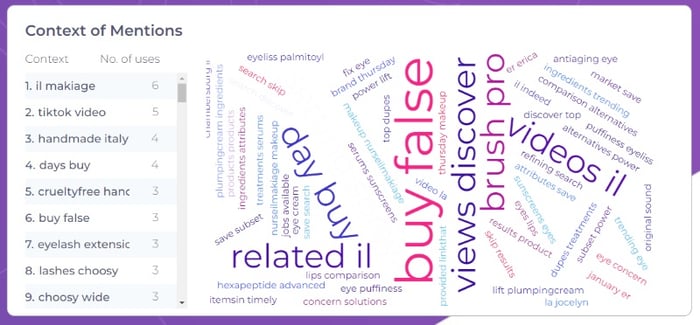
With these terms, you can understand what people like about your brand and products which you can emphasize in your content. Likewise, you can see if there’s any negative sentiment and room for improvement. All of the above can factor into your social media keyword and content strategies.
The sooner you lock down your social media search presence, the better.
Because competition is only going to get more and more crowded as shoppers rely on platforms like TikTok and Instagram to supplement Google search.
And also, consider why social SEO is growing so much in the first place.
Consumers today are looking for personal and meaningful recommendations before they feel confident in making a purchase.
By having a social SEO strategy powered by influencer content, you ensure that searchers come across authentic content promoting your brand and make a strong impression on them, too.
Again, we've seen firsthand how influencers help brands rank in social search. By working with influencers at scale, you can push your brand to the top of social search results faster.
The more content you publish, the likelier you are to rank long-term. There's a window of opportunity for brands that rank now versus months down the line.
That's where Statusphere's platform can lend a huge hand. Our micro-influencer platform enables brands to source authentic content from our community of vetted creators.
Statusphere's advanced matchmaking and fulfillment technology makes it possible for brands to work with influencers at scale in a fraction of the time it would take on your own or with other platforms.
We've saved our brands a collective 11,000+ hours to generate 75,000+ pieces of content.
Want to see how our platform can make it happen? Get in touch with one of our experts to see how our software can help your brand get influencer content at scale.
Want to get found in social search? We dig into how social SEO works on TikTok, Instagram and YouTube to help brands increase discovery and drive...
Ranking in social search means getting your keyword research right. This post breaks down how to create a list of social media keywords your brand...
What does social SEO actually look like? This post digs into examples of social search engine optimization and how brands are ranking in social...
Be the first to know about the latest tools, trends and strategies in influencer marketing for brands.